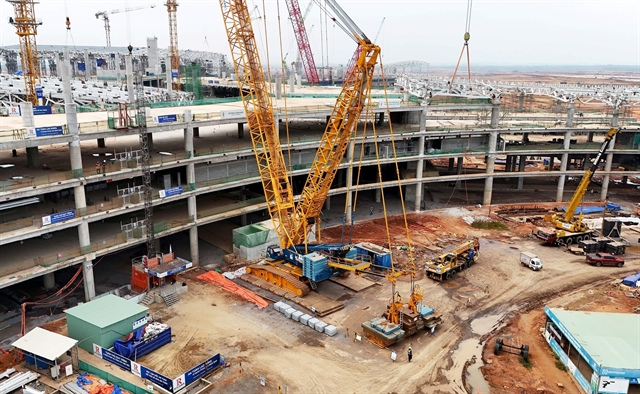The amended Law on Public Debt Management aims to manage public debt management, support national development and bolster investor confidence in Việt Nam, according to National Assembly Chair Trần Thanh Mẫn in a meeting in Hà Nội on November 3.

HÀ NỘI — The National Assembly is pushing forward amendments to the Law on Public Debt Management to strengthen transparency, accelerate reforms and boost investor confidence, National Assembly Chair Trần Thanh Mẫn said at a meeting on November 3.
The amended law, which came into force in 2017, is being processed under an accelerated procedure at this 10th session to align decentralisation and delegation with the Law on the State Budget and the Law on Public Investment. It aims to accelerate administrative reforms and expedite the implementation of projects with foreign capital, ensuring transparency, publicity, proactivity, and effectiveness in public debt management.
The draft amends 17 of 63 articles, abolishes certain provisions in five, and inserts new rules in another five. The lead committee welcomed many of the provisions on public debt classification, management principles and the proposed decentralisation measures, which assign certain debt-management duties to the Prime Minister and the Ministry of Finance while increasing autonomy and accountability for local governments in budget decisions and use.
On allocations and use of ODA and concessional loans, the draft gives the Government authority to regulate disbursement to provincial People’s Committees and public service units. Mẫn urged a strict definition of disbursement conditions, allocation ratios and assessment of impacts on the central budget, warning that localities could request larger foreign loans while repayment burdens fall on the central budget. Supervision and sanctions must be strengthened to ensure effective use of funds.
Regarding ODA lending arrangements, the draft allows commercial banks to re-lend to public service units under a model where the lending agency acts as lender without bearing credit risk. For enterprises investing in state-priority projects, re-lending could be structured so the lending agency bears part of the credit risk. Mẫn stressed that careful impact assessment is needed.
“In cases where re-lending carries no credit risk for the lender, lax borrower appraisal can create major risks that the State will have to shoulder. We have seen loans not tied to performance and banks failing in supervision, which undermines repayment capacity and public debt safety," he said. "The worst outcome is when funds are borrowed for one purpose but used for another. Banks also lack clear procedures for inspection and oversight. I request clarification: if a loan defaults, how will the commercial bank’s responsibilities be defined?”
He added that if risk is shared only partially, the law must specify the share and its basis; if not included in the law, the Government must issue a decree.
Regarding government guarantees, the draft proposes modifying the appraisal process so that the Ministry of Finance would rely on assessments by specific credit institutions rather than conducting its own financial appraisal. Mẫn said this procedure does not clearly define the guarantor’s responsibility, may add intermediate steps, and increase bureaucracy, calling for clearer delineation of the duties and obligations of involved credit institutions.
Concerning local borrowing and debt servicing, the draft provides that provincial People’s Committees prepare bond issuance schemes for approval by provincial People’s Councils when issuing local government bonds on the domestic capital market. This decentralisation grants greater autonomy, reduces administrative procedures, shortens issuance times and enables faster capital mobilisation for projects.
However, the National Assembly insisted that full authority for provincial People’s Councils to approve local bond issuance must operate within the total borrowing ceiling approved by the Assembly to safeguard public debt safety. VNS





